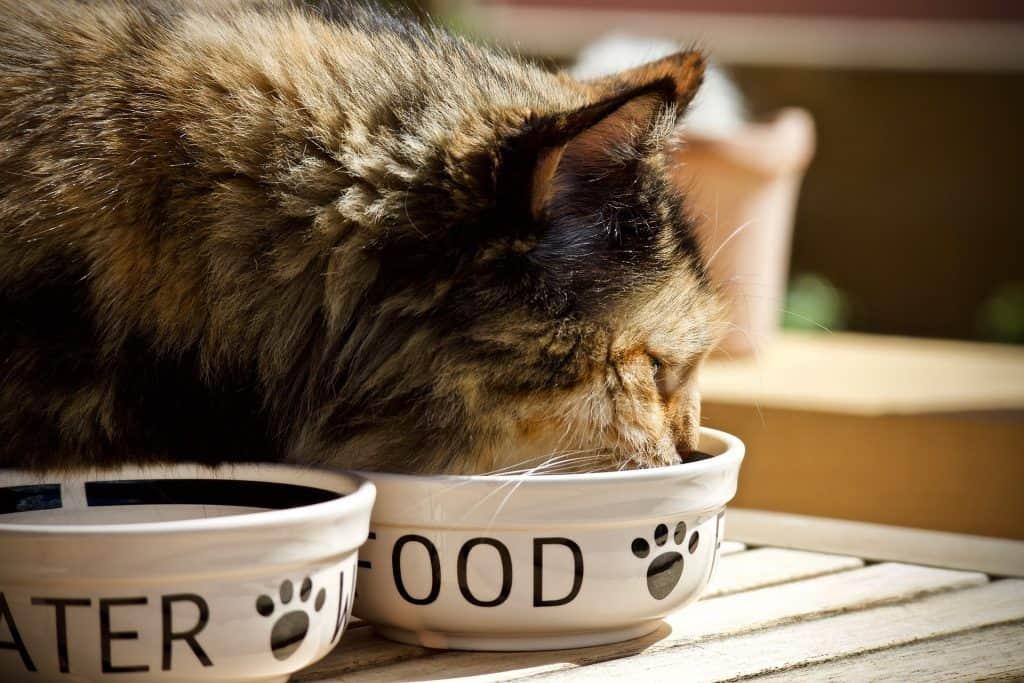
6 Hypoallergenic Cat Food Products Recommended by Pet Experts
It’s important to note that cats can develop food allergies at any point in their lives. While it may be tricky to identify the allergen(s) and work around it, we believe that it’s possible and necessary to help your cat achieve a balanced diet.
Common food allergens for cats
The most common food allergens for cats include chicken, beef, fish and dairy.
Do note that it’s possible for your cat to develop allergies to more than one food type.
If a cat is allergic to a certain type of food, you may notice the following reactions:
- skin inflammation
- dry flaky skin
- recurrent skin infections
- recurrent ear infections
- gastrointestinal issues such as diarrhoea and vomiting
How to Identify What Food Your Cat is Allergic to
There’s no cure for food allergies. The only solution is to learn how to work around it by finding a feasible diet that’s nutritious.
But first, you have to identify what food your cat is allergic to.
According to Dawn LaFontaine, Founder of Cat in the Box, a food trial is used to identify what food your cat is allergic to.
- Vet recommends a diet
Your veterinarian may recommend a commercial food product or homemade recipes, involving a protein that your cat has never been exposed to before. - Observe your cat for symptoms
During the trial, you are to strictly follow the diet set by the vet and observe your cat for any symptoms in the next 6 – 8 weeks. - Determine what to do next
If your cat is feeling better after the food trial:
You can begin reintroducing foods one at a time to see if any of them trigger the symptoms again.
However, if your cat isn’t feeling better after the food trial chances are the symptoms have a different root cause.
Tip!
Cats experience a range of severity in their food allergies. Some cats can’t tolerate even a trace of the allergen, while others are less sensitive.
Best Food Products for Cats with Allergies
There’s a lot of trial and error when it comes to determining what food your cat is allergic to. Once you’ve discovered it, here’s a list of food products from Applaws that are suitable for cats with allergies!
1. Chicken Breast (#8004257)

Suitable for: cats with allergies to fish, beef and dairy
Applaws Tin Chicken Breast only has 3 ingredients – chicken breast, chicken broth and rice – ideal for cats allergic to fish, beef and dairy.
Wet food with limited ingredients
With 82% moisture, this canned food is easy on the stomach.
Natural formula with no additives
Applaws products don’t contain any artificial flavours, stabilisers and preservatives. This minimises the risks of toxicity and poisoning in your cat.
Rich in protein
Cats love chicken, and it has high protein requirements for their optimum growth and performance.
2. Chicken Breast with Pumpkin (#8004264)

Suitable for: cats with allergies to fish, beef and dairy
For cats allergic to fish, this Chicken Breast with Pumpkin wet food is ideal. Apart from having limited ingredients, all Applaws’s recipes are natural and don’t contain any additives.
Benefits of chicken breast
Chicken breast is a good source of lean protein which is low in fat and sodium. Moreover, this meat is rich in nutrients such as vitamin B6, selenium and phosphorus, which will enhance your cat’s bone health, immune system and brain development.
Benefits of pumpkin
Pumpkin is rich in fibre – beneficial for weight control and treating diarrhoea and constipation. Aside from that, it’s also nutrient-packed as it contains vitamin A, C, E, calcium, iron and alpha-carotene.
Backed by Cheryl Dayotao, Pet Care Consultant of Pet Lovers Centre
3. Tuna Fillet (#8004259)

Suitable for: cats with allergies to chicken, beef and dairy
The Applaws Tin Tuna Fillet only has 3 simple ingredients so you know what you’re getting in the tin!
Limited ingredients
This is especially important for cats with allergies as it reduces the likelihood of exposure to allergens. Additionally, this product doesn’t contain any additives and preservatives.
Rich in nutrients
This tuna fillet recipe is rich in essential amino acids and fatty acids such as Omega-3 and -6. Omega-3 fatty acids is vital for cats with allergies because of its anti-inflammatory properties. Plus, essential amino acids maintains their health and function.
Note!
A tuna-only diet is not nutritionally balanced. This protein should be fed with other sources of protein and foods.
4. Tuna with Salmon for Senior Cats (#8009889)

Suitable for: cats with allergies to chicken, beef and dairy
Applaws is one the few hypoallergenic cat food brands in the market. Their Tuna with Salmon for Senior Cats is great for cats with allergies for several reasons.
Great protein source
Protein is essential to provide your cat with energy and amino acids to build muscles. All Applaws products meet the nutritional requirements outlined by AAFCO or FEDIAF.
Wet food
According to the National Research Council, wet foods usually have more protein and fat than dry foods, which is more favourable to achieve a healthy diet.
Suitable for senior cats
This means that this food is easy to eat and digest, great for cats with allergies.
5. Ocean Fish (#8004260)

Suitable for: cats with allergies to chicken, beef and dairy
This Ocean Fish recipe features 45% mackerel and 30% tuna fillet with fish broth and rice.
Apart from being inexpensive, its natural ingredients guarantees many benefits including
Improves heart health because of omega-3 and -6 fatty acids
Boosts immunity and reduces free radicals in the cat’s body
Enhances blood circulation and maintains blood pressure
High-quality and rich source of protein and energy
Promotes the overall growth and development of your cat
Plus, Applaws meals are free from any additives, preservatives, flavours and stabilisers. This makes it safe to feed your cat as there’s no risk of toxicity associated with it.
6. Tuna Fillet with Crab (#8009890)

Suitable for: cats with allergies to chicken, beef and dairy
The Applaws Tuna Fillet with Crab only has 4 ingredients: tuna fillet, crab, fish broth and rice. This nutritious wet food follows a limited ingredient recipe and is great for hydrating.
Benefits of crab
Other than being rich in protein, crab has a ton of other nutritional benefits. It’s rich in vitamin D, vitamin B12 and Omega-3 fatty acids. These nutrients aid in boosting heart health, improving immune system and brain development.
Benefits of tuna
Tuna provides protein and Omega-3 fatty acids (EPA and DHA) which improves skin and coat health, while relieving inflammation and allergic reactions.







No comment yet, add your voice below!